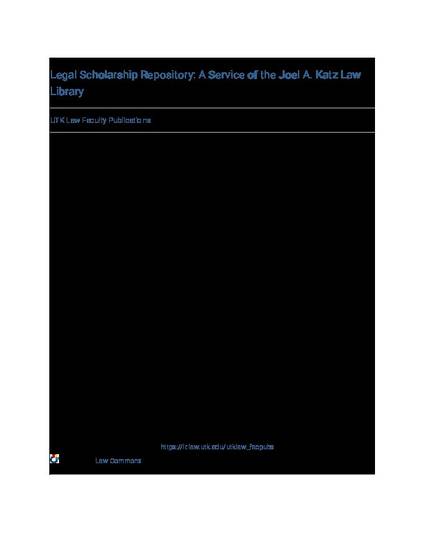
Article
Whistling Dixie About the IRS Whistleblower Program Thanks to the IRC Confidentiality Restrictions
Virginia Tax Review
(2010)
Abstract
The Internal Revenue Service has been authorized for many years to pay awards to individuals who blow the whistle on those who do not pay their taxes. But the whistleblower program was underused and ineffective. In 2006, Congress modified the whistleblower program to boost the IRS’s authority to pay cash awards to tax whistleblowers. The premise of the article is that Congress did not go far enough in 2006 in light of the confidentiality restrictions in Internal Revenue Code Section 6103. As currently written, Section 6103 essentially prohibits the IRS from disclosing to the whistleblower tax information of the purportedly non-compliant taxpayer upon whom the whistle was blown, which creates at least three problems that the article addresses. The article examines the tension between the confidentiality provisions in Section 6103 and the IRS’s whistleblower program and attempts to balance the competing interests of taxpayer privacy and tax administration.
Keywords
- Whistleblower,
- IRC 6103,
- Internal Revenue Service,
- Taxpayer,
- Tax Administration
Disciplines
Publication Date
Winter 2010
Citation Information
Michelle Kwon. "Whistling Dixie About the IRS Whistleblower Program Thanks to the IRC Confidentiality Restrictions" Virginia Tax Review Vol. 29 Iss. 3 (2010) p. 447 - 504 Available at: http://works.bepress.com/michelle-kwon/13/
